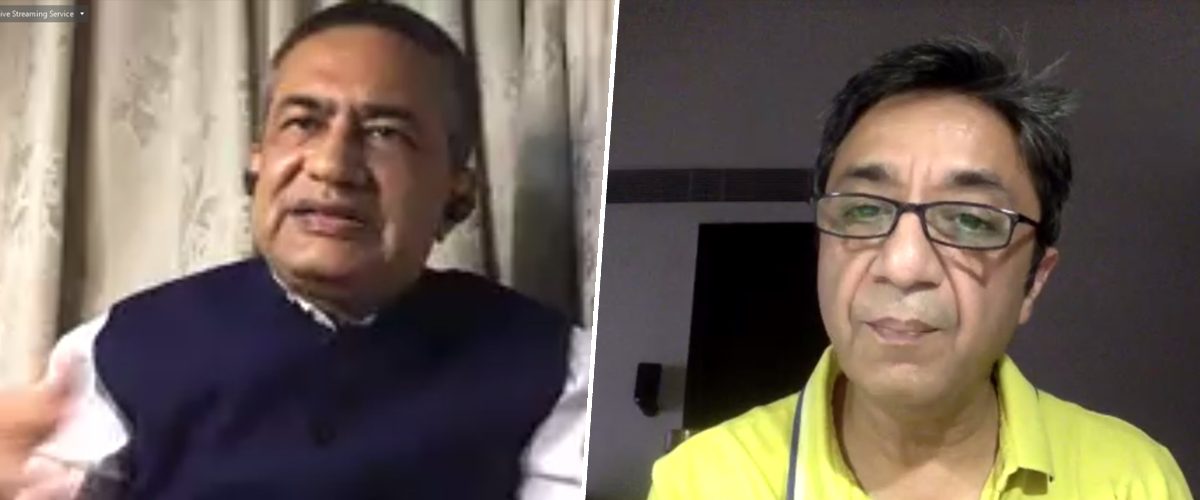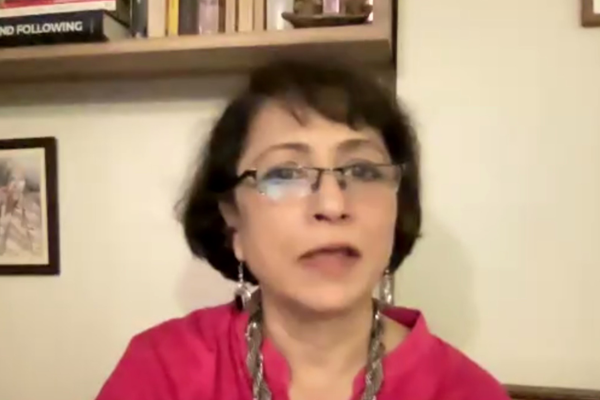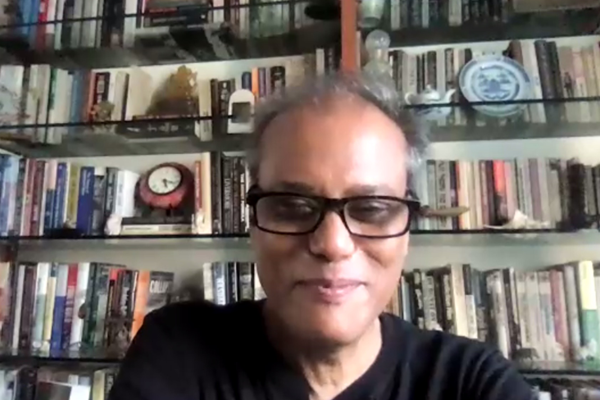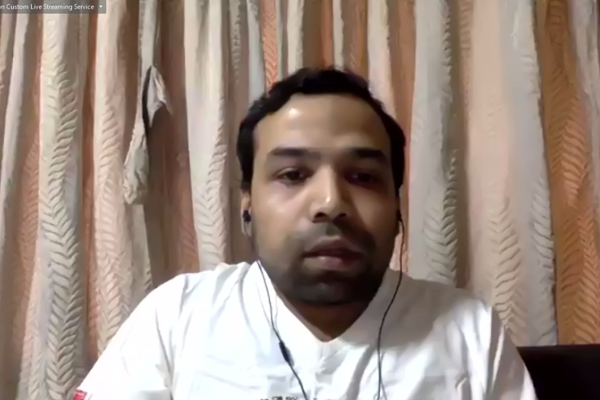
"24th February trading halt was a disaster even if you do not have a definition about what is a disaster for a stock exchange. If you think that is not a disaster, then pretty much nothing is a disaster after that. The exchange has to go to the disaster recovery (DR) site within two hours and also work on reviving main site. If the largest exchange does not want inter-operability, vendors and brokers will also not want it. Everyone says I have done it but no one has done it. And nobody checks it. Nothing happens to them if they do not comply with the regulations.
"All the noble intentions finally do not result in implementation. Some minor regulations get implemented extremely strongly at every level. And some of the larger policy, even nationally important issues, do not get implemented," says Ashish Chauhan, managing director (MD) and chief executive (CEO) of BSE.
He was speaking at a webinar organised by Moneylife Foundation on "Disaster Recovery and Crisis Management: Learning from Mistakes to Fix Safety Issues."
Talking about interoperability, standard operating procedures (SOPs) and compliance, the BSE chief says, "Some compliances are less important than others. For example, SEBI says the broker is required to give investor the best available price across the stock exchanges. It has never been done that way or never complied with. Nobody put this in place. So, when you inspect, investigate daily chart, and make sure if it is not done, then what is the fine? Otherwise, it is basically a fairy tale, make believe world. We have best regulations, better than the rest of the world. But everybody goes with impunity, I do not have to do it because nobody can. It may look like compliance issue, then how no one remembers it? Slowly it becomes truism. It may not be compliant, but true. You try to comply; you are the outlier and you get thrown out."
According to Mr Chauhan, interoperability is basically an execution issue. He says, "Basically most of the orders come from colocation (colo) and about 65-70% trade comes from there. Remaining, if you take top 20 brokers, they will account for another 18-19%. So what remains is smaller broker with very little volumes and trade. Colo have their own systems and do not require vendors. Large brokers do not require to go through the same vendor. So, if you want interoperability, you need to do it in systematically by giving proper timeline."
The technology glitch at the National Stock Exchange (NSE) on 24 February 2021 has unnerved many investors, especially due to the forced closing out of their trading positions. Investors are concerned, they want to understand more about interoperability between exchanges, disaster recovery sites, and more such contingency plans. Due to these aspects, Moneylife Foundation had organised the webinar.
Mr Chauhan says, "Current technology allows for data to be replicated on a Disaster Recovery (DR) site on a real-time basis. You may lose out on a few milliseconds of data, but pretty much all of it gets replicated to the DR on a real-time basis. Stock exchanges normally have a near DR site and a far DR site, where the data is replicated simultaneously and independently, on asynchronous basis."
Explaining interoperability, Piyush Chourasia, chief risk officer of Indian Clearing Corp Ltd (ICCL) says, "Interoperability or interop is something that was introduced by SEBI in 2018 to create resilience in the market. That is, if something goes wrong at the exchange, interop will be there to ensure that the entire market does not come to a standstill."
"What interop means is that the margin obligation of a broker goes down when a stock is bought on one exchange and sold on another," he added.
What happened on 24th February is not clear, Mr Chaurasia says, “We are certain that checks and balances that are in place to ensure interop should have functioned, did not happen. What we do know for sure is that both the exchange and the clearing corporation were shut down. So that is not something that interop would have helped with. When the clearing corporation for both exchanges was down, interop could not have helped.”
Umesh Jain, former CEO of NSE Infotech, explained various technical aspects related with a stock exchange, DR site, and SOPs. He says, "One aspect that I would like to highlight that DR does not solve all problems.
"There are scenarios where the DR site will not work. So. before you take a call to move to the DR site there are other considerations.”
“I can share three examples in which DR will not help. One, for any reason if there is data corruption in the primary site, the corruption would be replicated on the DR site as well since replication is automated. Second, if there's a software issue, where it could not handle one particular exception, the DR site will not be helpful as the same software is deployed on the DR site. Third, if your telecom service providers (telcos) go down and you have a two or even three telcos trying to support you, then whether you are connected to the main exchange or the DR site, the magnitude of the problem with the telco might mean a DR site might not help," explained Mr Jain.
Further he says, "For us to know whether it is a corruption issue, a software issue, or a telco issue, one needs to investigate. When this investigation happens it's not always in a very time bound manner that you can actually reach the root cause of the situation. Of course there are many sophisticated tools to find out where the issue started from, but it's a matter of chance that you may be able to find it quickly."
When asked about zero data loss as mandated by SEBI, Mr Jain says, "Such systems are incredibly expensive to put in place and maintain, and I am not entirely sure whether it is something that is required for the exchanges. Rather than making the technology very complex, I feel disaster situations can be resolved with simpler rules. Exchanges rely on systems to function 99.999% of the time and pay a premium to ensure they achieve this reliability."
Replying to a question on why brokers’ systems were not upgraded to handle interoperability, even after a SEBI circular mandated a few years ago, Mr Chourasia says, "Basically all brokers use a front office vendor and a back-office vendor. So, the back-office vendors were able to implement interop in a very short time because they had to. As they have to upload files from clearing corporations and exchanges to ensure that there is no mismatch. Front office vendors have a near monopoly and as per my information, they have refused to do this, and are asking for fees to implement. Just to be clear vendors are not regulated, while entities are."
Participating in the discussion, Keshav Samant, CEO of 63 moons, clarified that they have provided inter operability on their ODIN software to all brokers. He says, “We have given interop as an option to all our customers, but it is up to the member whether to turn it on or off. This is a choice the members have decided not to turn on. Further, we have not asked for money from any of our clients to provide interoperability function on our software.”
"It is the responsibility of the exchanges and the regulators to involve all stakeholders in the decisions concerning interoperability and use of DR sites. Interop was probably put on the backburner and not pushed as a matter of importance, when SEBI mandated it is implementation, which is why we are now realising that it has not been implemented by many brokers,” Mr Samant added.
Watch video of the Webinar….




